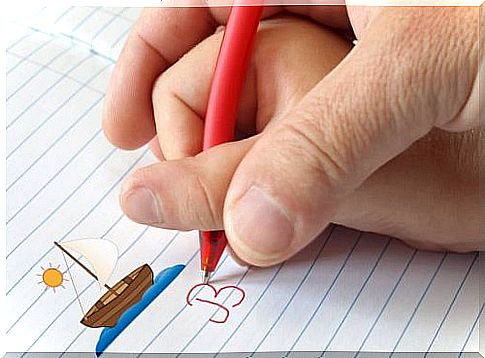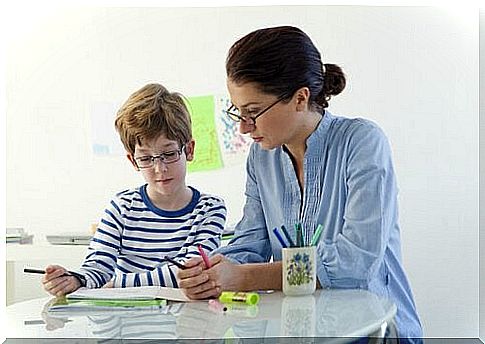Learning Difficulties – Do You Recognize In A Child?

Andżelika is four years old and went to school for the first time. In class, he does not talk or share with other children. He also seems not to follow the teacher’s instructions. The school psychologist and teacher arrange a meeting with the parents because they see that the girl has a learning disability.
In a short time, Andżelika’s parents are called to school due to three different situations. At home, Andżelik is talkative and has no difficulty learning from her mum and dad. But this situation is not repeated at school.
The pressure begins to build up in Andżelika’s parents, and he takes her to a neuropediatrist. After the evaluation, the doctor states that he does not see any abnormalities in her. Andżelika is just different from her classmates, as is the case with many children.
Soon after, a “miracle” happens. Andżelika begins to meet her peers, show interest in the lessons, and interact enthusiastically with her teacher and classmates.
Each child learns at their own pace
Many parents, children, teachers, and healthcare professionals have lived through this story. While it is often said that “each child learns at his own pace,” very often fear causes us to see problems where there are none.

As children grow up, their school subjects become more complex, the amount of work increases, and their school relationships take on new colors.
The child becomes more aware of his possibilities and limitations. For some, it’s okay, for others, not so much.
When can we detect when a child is having a learning disability?
Some experts will argue that the sooner a learning disability is detected, the better. However, the truth is that young children run a high risk of being misdiagnosed.
A doctor can make the best diagnosis of learning disabilities when a child enters third grade, which is around the age of eight. Learning disabilities affect information processing. For example, a child may take longer to learn to read or write and has a tendency to have problems with math.
They may understand how to solve certain problems in theory, but have trouble putting it into practice. This affects not only school performance but also their relationships with others.
The first signs of a learning disability
Below are the symptoms of learning disabilities for children younger than 5 years old. However, we must emphasize not to despair right away. You need to be patient, watch your baby and see him develop.

The signs are as follows:
- Motor problems such as writing, walking, cutting, tearing, buttoning or tying shoelaces.
- Struggling with simple commands and difficulties in carrying them out.
- Delay in speaking, speech problems, and difficulty learning new words.
- Difficulty learning to read, multiplication tables, the alphabet, days of the week, colors and geometric shapes.
- Problems with concentration and keeping attention.
- Feeling frustrated or unmotivated to engage in school activities or other home or social activities.
Learning disability indicators in older children
- Reluctance to talk about school and spend a lot of time completing tasks.
- Quick boredom and lack of interest in school.
- Bad or aggressive behavior at school.
- Showing signs of difficulty identifying and expressing your feelings.
- Problems sleeping or eating.
Children with learning difficulties
These emotions can negatively affect their self-esteem. They may also be depressed because they know what they want to achieve, say, write or do, but in practice it is difficult for them to do it.

In some cases, children with learning disabilities also show special needs such as dyslexia, dyscalculia, or both. This undoubtedly helps in an accurate diagnosis. They may also have difficulty paying attention, but that doesn’t mean they have attention deficit disorder.
How can I help my child?
- Understand and accept that learning disability is a lifelong disorder. But remember not to worry too much about it. With the right help, your child will learn and develop properly to be happy and healthy.
- Your child’s teacher can help detect symptoms and create an appropriate learning environment, but cannot make a diagnosis.
- Good diagnosis and correct intervention will have a very positive effect on your child’s school life.
- Tests to detect learning disabilities are conducted by specialists: psychologists, pediatric neuropsychologists, paediatricians or psychiatrists.
- Children with learning disabilities are still learning. You just need to focus on their skills and preferences. This will build their self-esteem.
- Criticizing, yelling or punishing such children is not the appropriate method for children with learning disabilities. In fact, it can make the problem even worse.
- If your child has a tantrum or cries because of his limitations, stay with him and support him. Say how much you love them and remember how much effort it sometimes costs them to do something that is not so easy for them.
For mom and dad
Raising a child with a learning disability is stressful. If you need help or support, see a specialist. Your child will also benefit if the parents are mentally well.
Please do not compare your child with learning disabilities to other children who do not, especially a brother or sister. Your child will appreciate it.









